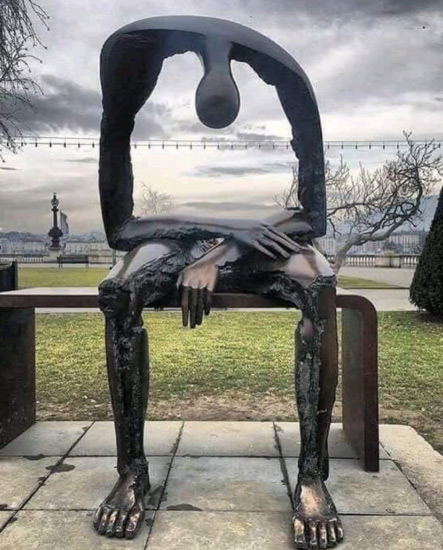Depression. Fear. Suicide. The Mental Health impact of the Covid-19 Pandemic

Depression. Fear. Suicide. The Mental Health impact of the Covid-19 Pandemic
Depression. Fear. Suicide.
The Mental Health impact of this pandemic is only starting to show.
I am writing this article to encourage people to take care of their own mental well-being. And to show compassion and look out for others who are struggling.
Don’t be scared to ask for help for yourself. And don’t be scared to ask others if they are ok.
The pandemic has tested all of us.
Even those who went into lockdown mentally, physically and financially secure.
Their life may not look or feel like that now.
The economic impact has increased the rate of unemployment. All around businesses are collapsing and lives are being torn apart.
Relationships have been tested and for some have broken down. Couples are being forced to stay together because of the restrictions on movements.
The fear of being infected has triggered health anxiety for some. And the feelings of loneliness have been exacerbated because of social distancing; increasing the risk of depression.
The use of alcohol as an emotional crutch has increased dependency.
People have lost loved ones, and in some families more than one family member has lost their life to Corona Virus. The feelings of grief and loss are worsened by the restrictions to attend the funerals.
And we’ve yet to see the full psychological impact of trauma on our frontline staff caring for Covid-19 patients.
Coping with the added stress and increased pressure of looking after seriously ill patients – and the reality that they couldn’t save all their patients.
All factors that increase the risk of anxiety and ongoing depression.
The sudden upheaval of lockdown has had a severe impact on those who were severely depressed before, and for them their depression may have deepened.
Depression does not discriminate and often can come without warning.
It varies in severity, ranging from low mood to clinical depression that can make you feel suicidal
Though there is no evidence that suggests the pandemic will increase suicide.
But those who are in such a deep crisis may not be able to think clearly. They are unable to see any other way out.
They feel trapped by their hopelessness and powerless to change their situation. A loss of control and despair that the world is not worth living for. That suicide and death offer an escape from their misery.
If this how you feel…seek help immediately if you feel like life is not worth living.
Acknowledge you are struggling.
You are not weak.
This is an unprecedented time.
Do not feel guilty or bad about asking for help.
Worried about someone?
Encourage them to talk without interrupting.
Don’t, worry about what to say, and that by opening a conversation you are going to make them feel worse.
As long, as you are kind and compassionate, it won’t make them feel worse. It tells them somebody cares.
Signs to look out for:
- A change in routine, sleeping more or loss of appetite
- Loss of interest in their appearance and personal hygiene
- Lack of energy and struggles to sleep
- Withdrawing from friends and family – not wanting to talk
- Putting themselves down, e.g. “I am a waste of space”
- Increase in alcohol, drug-taking or smoking
- Appearing sad or tearful
If you are worried that someone is at serious risk of hurting themselves you can ring the Samaritans, www.samaritans.org 116 123
Or seek urgent medical attention, take them to A and E, or phone an ambulance.
If this article has raised issues for you, then get in touch. I offer face to face and online support via WhatsApp or Zoom.
Free support is also available from your GP.
Help and advice is available from the helplines below.
CALM www.thecalmzone.net 0800585
Mind, www.mind.org.uk 0300 123 3393
Papyrus www.papyrus-uk.org 0800 068 4141

Diane Woolrich is a Counsellor and Hypnotherapist working in private practice. She helps people live a life that is true to themselves, to be kind to themselves by changing their negative thoughts and behaviours, to be able to fulfil their true potential.

